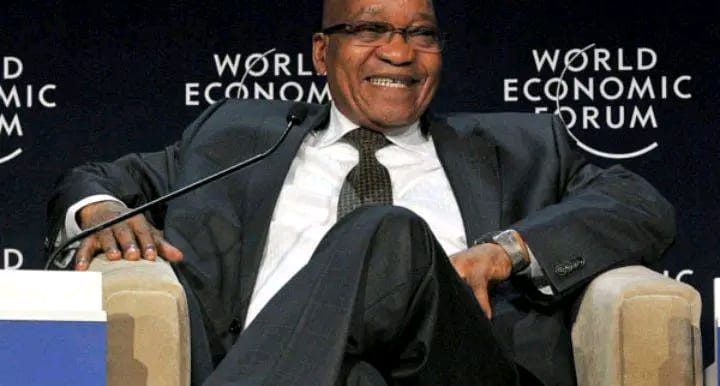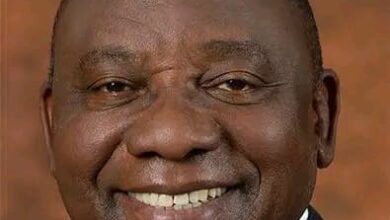Jacob Zuma was expelled from the ANC, joining the ranks of other politicians who made similar promises but faced the same fate.

The expulsion of former South African President Jacob Zuma from the African National Congress (ANC) has brought to light a trend among politicians who notoriously vow to never leave the party, only to ultimately face expulsion. Zuma’s expulsion comes after years of controversy and legal battles, culminating in his resignation as president in 2018. However, he is not the first high-profile member of the ANC to be ousted from the party.
One such politician is Julius Malema, the former leader of the ANC Youth League. Malema, known for his fiery rhetoric and radical stance on economic issues, was expelled from the ANC in 2012 for bringing the party into disrepute and sowing division within its ranks. Despite his expulsion, Malema went on to form his own political party, the Economic Freedom Fighters (EFF), and has remained a vocal critic of the ANC.
Another prominent figure who faced expulsion from the ANC is Mbhazima Shilowa, the former premier of the Gauteng province. Shilowa was expelled from the party in 2008 for alleged financial misconduct and mismanagement during his time in office. He went on to join the newly formed Congress of the People (COPE) party, but has since distanced himself from active politics.
Similarly, former ANC chairperson, Baleka Mbete, also faced expulsion from the party in 2008 for alleged financial irregularities and abuse of power. Mbete went on to serve as the Speaker of the National Assembly and Deputy President of South Africa, but her reputation within the ANC never fully recovered.
In the case of former ANC Youth League leader, Fikile Mbalula, he was expelled from the party in 2019 for making disparaging remarks about the leadership of the ANC. Mbalula’s expulsion came as a shock to many, as he was seen as a rising star within the party.
These examples highlight the complex and often tumultuous nature of South African politics, where loyalty to the ANC is not always enough to guarantee a politician’s place within the party. The expulsion of Jacob Zuma serves as a reminder that no one is untouchable within the ANC, and that even the most powerful figures can face consequences for their actions.
As pedestrians casually make their way past the African National Congress’s iconic Luthuli House headquarters, they are met with a sight that embodies the rich history and political significance of the ruling party. The imposing structure stands tall, with its intricate architecture and prominent ANC logo serving as a reminder of the party’s role in shaping the nation’s past, present, and future.
The footsteps of those walking by echo the countless individuals who have passed through the doors of Luthuli House, each leaving their mark on the organization that played a pivotal role in the fight against apartheid and the establishment of democracy in South Africa. It is a symbol of resilience, unity, and the unwavering commitment of the ANC to serving the interests of the people.
As the sun sets in the distance, casting a warm glow on the building’s facade, one cannot help but feel a sense of reverence for the history that resides within its walls. The legacy of the ANC is palpable in the air, a reminder of the sacrifices made and the victories won in the pursuit of a better South Africa for all who call it home.
Former President Jacob Zuma’s expulsion from the African National Congress (ANC) marks a significant moment in the party’s history. While he is not the first to be ousted by the ANC, the circumstances surrounding his removal have drawn widespread attention and scrutiny. Zuma’s tenure as president was marred by corruption scandals and controversies, ultimately leading to mounting pressure for his resignation.
As one of the most prominent figures within the ANC, Zuma’s expulsion sends a strong message about the party’s commitment to tackling corruption and upholding its values. The decision to remove him from the party signifies a turning point in the ANC’s efforts to regain public trust and credibility.
Zuma’s expulsion serves as a reminder that no individual is above the law, and that accountability is paramount in a democratic society. The ANC’s actions in removing him demonstrate a willingness to confront internal challenges and prioritize the interests of the country over party loyalty.
While Zuma’s expulsion may not be the last within the ANC, it undoubtedly sets a precedent for holding leaders accountable for their actions. As the party looks towards the future, the events surrounding Zuma’s removal will shape the direction and ethos of the ANC for years to come.
Zuma’s political career was marked by his rise through the ranks of the African National Congress (ANC), starting from his humble beginnings as an activist in the struggle against apartheid to eventually becoming one of the party’s most influential leaders. His tenure as president, deputy president, chairperson, and deputy secretary general of the ANC solidified his reputation as a staunch defender of the party’s principles and a powerful force within its ranks. Throughout his years of service, Zuma garnered a strong following among party members and was widely respected for his dedication to the cause of freedom and equality in South Africa. His leadership played a crucial role in shaping the ANC’s history and guiding the country through a period of significant political and social change. Ultimately, Zuma’s legacy within the ANC is one that will be remembered and celebrated for generations to come.




